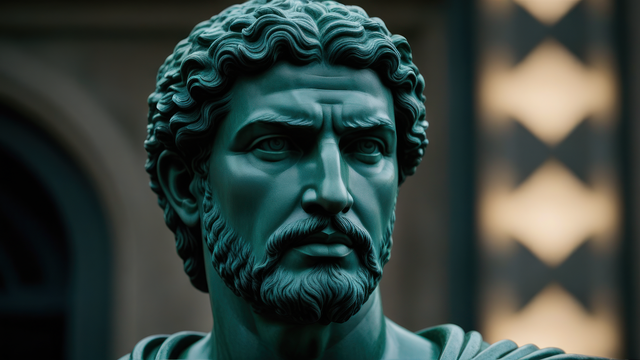Stoicism: A Path to Resilience, Wisdom, and Virtue

Introduction
Stoicism, a philosophy that has been practiced by great leaders throughout history, is designed to make us more resilient, happier, and wiser. It offers valuable insights and practical exercises that can help us become better individuals, parents, and professionals. In this article, we will explore the core principles of Stoicism, delve into the lives of influential Stoic philosophers, discuss the four virtues of Stoicism, recommend the best books on the subject, and provide nine Stoic exercises to get you started on your Stoic journey.
I. What Is Stoicism?
Stoicism is an ancient philosophy that aims to cultivate inner strength and virtue. It teaches us to focus on what we can control and accept what we cannot. Stoicism provides a framework for dealing with the challenges of daily life and helps us lead a fulfilling and virtuous existence. The teachings of Stoicism have influenced numerous notable figures throughout history, from Marcus Aurelius to Thomas Jefferson.
II. How Did Stoicism Begin?
Stoicism originated around 304 BC when a merchant named Zeno was shipwrecked and introduced to philosophy. He founded the philosophy school known as the Stoa Poikile, where he and his disciples gathered for discussions. Unlike many other philosophical schools, Stoicism did not carry Zeno's name, emphasizing the humility of its founder.
III. Who Were The Stoic Philosophers?
Stoicism was shaped by several prominent philosophers, including Marcus Aurelius, Seneca, and Epictetus. Marcus Aurelius, a Roman emperor, left behind his personal journal known as "Meditations," which offers profound insights into Stoic philosophy. Seneca, a political advisor and playwright, wrote extensively on various Stoic topics, and Epictetus, a former slave, taught Stoicism in Greece.
IV. What Are The 4 Virtues of Stoicism?
The four virtues of Stoicism are courage, temperance, justice, and wisdom. These virtues serve as essential values in living a Stoic life. Courage allows us to face challenges and overcome adversity, while temperance teaches us to avoid excess and find balance in our actions. Justice emphasizes doing what is right, and wisdom guides us in making wise decisions and navigating the complexities of life.
V. What Are The Best Books On Stoicism?
To deepen your understanding of Stoicism, we recommend exploring the following books:
"Meditations" by Marcus Aurelius
"Letters From A Stoic" by Seneca
"Discourses" by Epictetus
"The Daily Stoic" by Ryan Holiday and Stephen Hanselman
"The Obstacle Is The Way" by Ryan Holiday
VI. How To Be A Stoic: 9 Stoic Exercises To Get You Started
To incorporate Stoicism into your life, here are nine Stoic exercises to practice:
The Dichotomy of Control: Differentiate between what you can control and what you cannot.
Journaling: Reflect on your thoughts, actions, and lessons learned.
Practice Misfortune: Imagine and prepare yourself for difficult situations.
Train Perceptions: Shift your perspective and see obstacles as opportunities.
Remember—It's All Ephemeral: Embrace the impermanence of life and focus on the present.
Take the View From Above: Zoom out and see life from a higher vantage point.
Memento Mori: Meditate on your mortality to appreciate the present.
Premeditatio Malorum: Imagine and prepare for potential setbacks and obstacles.
Amor Fati: Embrace and love your fate, accepting life's challenges as opportunities for growth.
VII. What Are The Best Stoic Quotes?
Here are some notable Stoic quotes to inspire you:
"We suffer more from imagination than from reality." - Seneca
"Our life is what our thoughts make it." - Marcus Aurelius
"Be tolerant with others and strict with yourself." - Marcus Aurelius
"If it is not right, do not do it. If it is not true, do not say it." - Marcus Aurelius
"You always own the option of having no opinion. Leave them alone." - Marcus Aurelius
VIII. Conclusion
Stoicism offers valuable principles and exercises that can help us lead more fulfilling lives. By cultivating resilience, wisdom, and virtue, we can navigate life's challenges with grace and find inner peace. As you embark on your Stoic journey, remember the four virtues, explore the recommended books, and practice the Stoic exercises to develop a Stoic mindset and embrace a life of virtue and fulfillment.